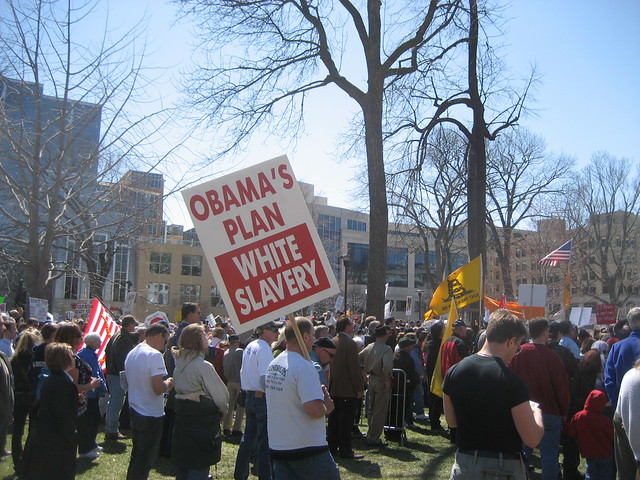When the topic of race is discussed, most often it is seen in black in white. It was not until about the 18th century that race was used as a distinguishing factor of people. As the commodity known as enslaved Africans began to become more important for the establishment of the Americas, there was a need for the justification of who deserved to be enslaved and who did not. The idea of race bloomed and went from meaning a rapid current, or to compete in a race to a distinguishing characteristic of physical attribute, and status, or being labeled as "black" or "white".
Soderlund (2000) states,
From the time the first Africans stepped onto Virginia's shore, the English mainland colonies moved toward a biracial society, one in which people from Africa and their descendants ---- including those of mixed African and European heritage---- held a subordinate legal, social and economic status.(p.63)
The beginnings of creating a race began with distinguishing and creating division among those who were brought to the Americas to work. Enslaved Africans worked along side with poorer Europeans who came to the Americas as indentured servants. Each worked side by side in the fields cultivating tobacco and other crops which lead to the rapid growth of the economy in Virginia. Prior to 1640 Soderlund (1640) indicates that there was not a demonstration of a rigid system of perpetual servitude implemented yet. He gives examples of how Africans were notated. He argues that although Africans were taken in low regards they still had opportunity to buy their own freedoms. Freed people were distinguished differently than those who were enslaved. Soderlund (2000), explains that those in bondage were typically described as "negar" or negro, and those freed would be given a titles, such as one freed person called "Antonio a Negro". Even though enslaved Africans were being called Negro, or Negar for their darker skin it was not until in the 1700's when slavery became more rigid did being called a negro have a strong meaning. And whether you were free or enslaved was of no consequence because if you were "black" then you was entitled to be enslaved.
According to Philipsen (2003), "European conquest was initially justified through presumed ethnic or religious, and not racial superiority." He continues on to explain that "the English displayed similar attitudes toward the Irish, Africans, and Native Americans in their incessant searches for exploitable laborers, dubbing them "heathens," "barbarians," or "savages"--- largely independent of skin color".(p.196) Elite Europeans saw anyone that was not of the same social class, and religious group as beneath them. To prevent the caste system from being over thrown Elite Europeans raised the status of indentured servants creating a bigger gap and preventing loyalties to be made between servants and the enslaved. Soderlund (2000) concludes,
Thus, during the years from 1660-1720, as the population of Africans and African Americans grew in the Chesapeake, colonial elites developed increasingly rigid legal codes that restricted the rights of slaves and free blacks. These laws, including ones against miscegenation, raised the wall between blacks and whites and bonded the loyalties of lower-class whites to the elites, thus reinforcing social hierarchy based on skin color rather than economic condition.
My understandings of race had been unclear growing up but I was always taught and knew that as a young black female despite how good you can be at something, you always have to work extremely hard to prove that you are the best. One because you are a female, but also because you are black. There was an understanding that even with brilliance there will always be someone who has a stigma or idea about you because of the race that you are. Race always seems to manifest itself , like the pink elephant in the room.
In contemporary times how life looks for someone who is considered "black" and middle class may look similar, but what it takes for them to reach this point may and often times is very different.Those who are of African or "Black" descent have a lot more to prove in America than those who are white, not only to people who are white, but also among those considered to be of their same race. The advantages and disadvantages of slavery cut a clear path for all those of future generations. America was built by the strength, sweat and blood of enslaved Africans, yet race was created to ostracize and prevent them as well as their future descendants from claiming the fruits of their hard labor as their own.
Sources
Indentured Servants In The U.S. | History Detectives | PBS.
(n.d.). PBS: Public Broadcasting Service. Retrieved October 10, 2013, from
http://www.pbs.org/opb/historydetectives/feature/indentured-servants-in-the-us/
Philipsen, D. (2003). Investment, Obsession and Denial: The
Ideology of Race in the American mind. JSTOR, 72(2), 196. Retrieved October 10,
2013, from the JSTOR database.
Scott, W. R., & Soderlund, J. R. (2000). Creating a
Biracial Society. Upon these shores: themes in the African American experience,
1600 to the present (pp. 63,68,71). New York: Routledge.
photos


No comments:
Post a Comment